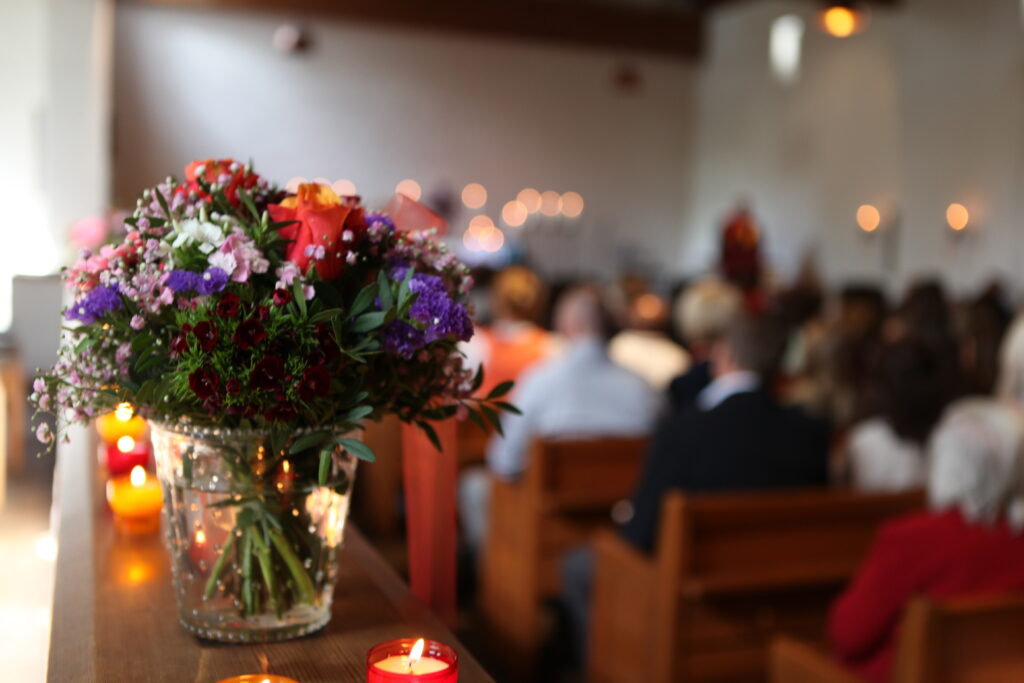What is a cremation?
A cremation is a process that uses intense heat to convert a person who has died into ashes. Once the cremation is complete, the ashes are returned to the family of the person who has died.
In the UK, around 53% of funerals are conducted as a cremation. In the last five years, we have seen a steady rise in the number of direct cremations to 20% of all funerals in 2024.
Which religions believe in cremation?
Each religion has a different preference when it comes to cremations. It would be best to contact a member of the team to discuss in detail the different services we can provide, however as an overview the following religions state:
- For Hinduism, Sikhism and Buddhism cremation is mandated, although Sikhs can be buried if cremation is not available.
- Christian denominations can be either cremated or buried.
- There is still an inclination to burial in Roman Catholicism, but cremation is permitted. Since 2023, the Vatican has softened its stance on what Catholics can do with ashes, whilst still mandating that ashes must be preserved in a consecrated place, but also said that family members could request ‘a minimal part of the ashes’ may be kept in a place of significance.
- For Islamics, burial is mandated and preferably without a coffin.
How can I personalise a cremation?
At CPJ Field we recognise that every life is unique and every funeral and cremation should be unique too. Our Things to Consider section will help you tailor every last detail to suit your wishes, from a choice of coffin, to transport or poems and readings, every aspect of a cremation can be personalised.
Where happens at a cremation service?
A cremation service usually takes place in just under an hour.
As Britain has become increasingly secular, cremations are often led by a celebrant. Celebrants can incorporate religious elements but will not perform blessings. Sometimes a religious service can be held at a different location, before the coffin is transported to the crematorium for the committal.
How happens to the ashes after a cremation?
Once the cremation is complete, a member of the team will contact you to arrange for collection. It can be difficult to know what to do with them, once received. One option is to scatter them in a place of personal significance or perhaps you would prefer to have them interred. An ashes interment means to place cremated ashes into a permanent place.
Our guide on Scattering Ashes looks at the different options to help guide you when deciding what to do with your loved one’s ashes.
What is a direct cremation?
A direct cremation is a simple, unattended cremation. There is no funeral service and no mourners present. A direct cremation is a low-cost option, often chosen for its flexibility to allow for a wake or celebration to be held at a later date. However, with no send off for family and friends to say goodbye, this option does not always suit everyone and can leave a lack of closure for some families, not having the opportunity for collective mourning and remembrance.
Are cremations cheaper than burials?
A cremation is usually cheaper when compared to the cost of a burial. This is in part due to the additional costs related to a burial, including the cost of a burial plot and costs relating to a headstone or memorial plaque.
For more information about the cost of a funeral, contact your nearest funeral director by using the search below.





